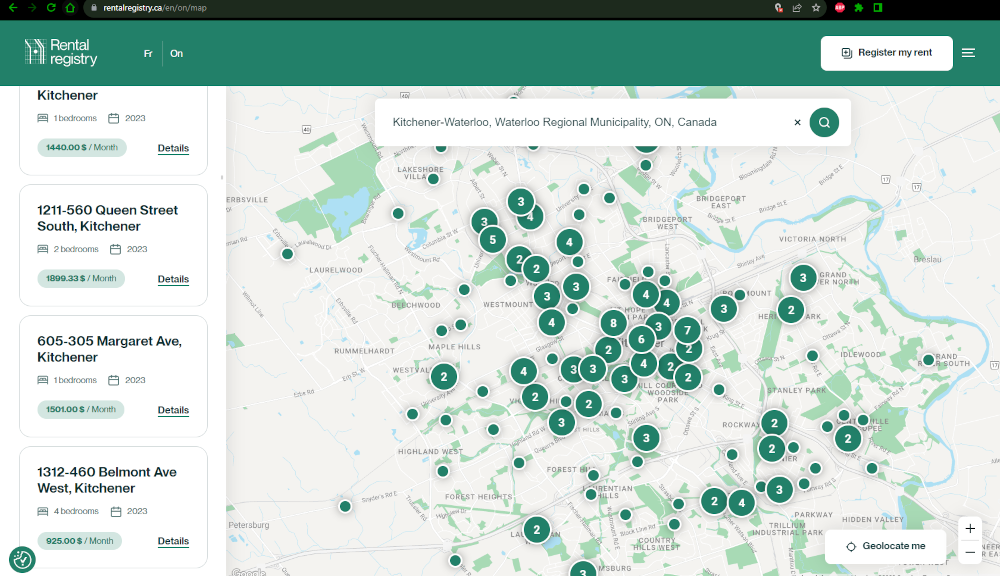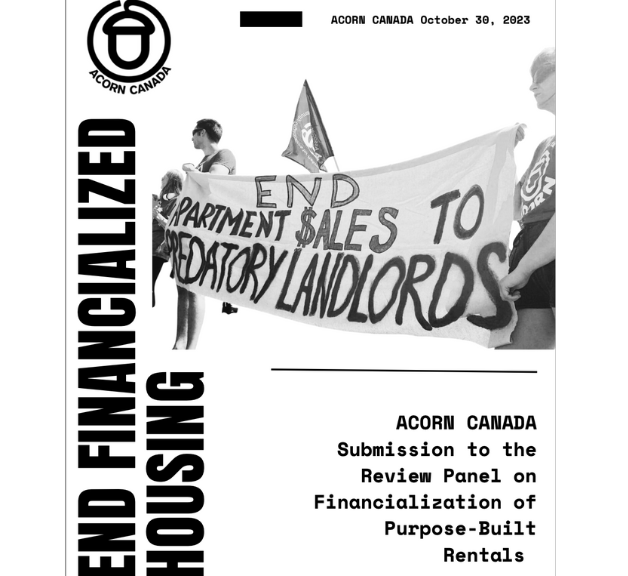CKMS News -2023-11-21- ACORN Ontario’s Rental Registry
by: dan kellar
Waterloo – Over 8,000 renters have registered their units with ACORN’s Rental Registry since the grassroots social and economic justice organisation launched their map based online database at the end of the summer. ACORN Ontario told CKMS News in a statement that “the rental registry will track rising rents across the province.” which they say will “lead to better, publicly-available housing data that can help protect and create more affordable housing”.
Today’s shows features interviews with Acer Bonapart, the chair of ACORN Waterloo Region, which since its launch earlier this year, has focused primarily on tenant rights and housing issues. Additionally, CKMS speaks with Geordie Dent of the Federation of Metro Tenants’ Associations (FMTA), a non-profit organization founded in 1974 which advocates for better rights for tenants. The show also includes comments that the ACORN Ontario chapter provided to CKMS News.
ACORN Ontario told CKMS News that the registry was created by the Montreal based non-profit Vivre en Ville, saying “The registry was first introduced in Quebec and has over 30,000+ rents voluntarily registered. The rental registry is easy, quick and secure as it was designed to be compliant with SOC2 cybersecurity standards.“, standards that meet requirements for governmental use.
According to rentals.ca, which has for years tracked such data, average rents across the country are still rising at over 100$/month, with a one bedroom apartment in Waterloo averaging 1,944$ a month in October. Two bedroom apartments are now averaging 2,543$ a month, nearly a 15% increase from last year at the same time.
While many provinces have some form of rent control, in Ontario since Doug Ford dismantled the existing system in 2018, that control comes in the form of a 2.5% maximum allowable increase to the rent after a 12 month period.
However, the Landlord and Tenant Board, an arm of Ontario’s legal system, often allows this maximum to be exceeded after being convinced by a landlord’s request. As Geordie Dent explains, the board approves the above guideline increase “in the neighbourhood of 90-95% of the time”. Additionally, the maximum increase also does not apply between tenants, meaning the landlord can increase the rent any amount they want on new tenants once the old ones move out.
The Landlord and Tenant Board does not specifically track how often they approve AGIs and their 2022-2023 report has a lot of incomplete data. A brief review of cases by CKMS News centering on Above Guideline Increases on the Canadian Legal Information Institute, where all such cases are listed, reveals the 10 most recent cases were all decided in favour of the landlord, with the majority declaring: “The Landlord justified a rent increase above the guideline because of capital expenditures.”
While above guideline increases continue to have harmful effects on renters, ACORN Ontario told CKMS News the registry will provide “Greater transparency for renters so they can make informed decisions about where they choose to live”. The statement concluded “Better housing data can help inform stronger affordable housing policies like those supported by Ontario ACORN’s ‘Real Rent Control’ Campaign. Over time, the registry will clearly show that rents increase astronomically in between tenancies on units that aren’t subject to rent control, and as a result of above guideline rent increases. These loopholes in our current rent control laws create incentives for landlords to renovict or demovict their tenants or neglect repairs until tenants get fed up and leave”.

